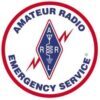ARE YOU READY?
Training: KNW-102
Originally written by Greg Sarratt, W4OZK,
ARRL Alabama Section Manager
updated: 2-24-2016
The 2016 Atlantic Hurricane Season begins on June 1st, but as we in the Houston area found out last May, any disaster can happen at any time. The flood that surprised us all May 25-26, now known as the Memorial Day Flood of 2015, got the jump on us before hurricane season began, and in fact, wasn’t related to a hurricane at all.
To put it in perspective, where Shepherd Drive meets Buffalo Bayou, west of downtown, the flood stage is 28 feet. The Memorial Day crest was 33.73 feet, which beat Hurricane Ike’s 2008 crest at that same location by 1 and one-third feet.
It was quite a wake-up call to some of us Houston area hams who’d gotten used to the rather leisurely time frames we have to prepare when hurricanes head our way. It’s one thing to see a hurricane on radar for several days in advance, and another to have your weather radio wake you up with loud beeps you weren’t expecting!
Tonight’s training, entitled, Are You Ready? reminds us that Amateur Radio operators who assist on local, regional or national disasters are required to have increasing levels of training and experience.
Necessary Federal requirements are designed to keep the best workforce in the disaster area. Efficient Amateur Radio operators must consider safety, and must prepare, train, practice and test themselves
before the event.
Many hams do most of this already, so make sure you are ready. Prepare your personal Jump Kit, equipment, manuals, provisions, money, plan, and join and build your local ARES or emergency
communications group and get vaccinations.
Train by taking all the ARRL, American Red Cross, Salvation Army and Federal Emergency Management Agency (FEMA) training you can get.
Build your experience and practice at Field Day, Simulated Emergency Test, contests, nets, public service events, participate in planning, in drills and in passing traffic.
Test by connecting your equipment in different configurations, learn to operate it fully, efficiently and to interoperate with other amateurs. Here are some recommended minimum requirements goals:
Training:
- FEMA – ICS-100, ICS-200, IS-700 and IS-800
- ARRL – EC-001 and EC-002; First aid and CPR
- Salvation Army – National Disaster Training
- American Red Cross – Introduction to Disaster
Safety/vaccinations: Tetanus; Hep-A; Hep-B; TB. Check with your doctor on these and other vaccinations necessary for you. Also, if you have special dietary needs, be sure to have plenty of any
nutrition bars or drinks, as well as any medication you will want to have on hand.
Experience:
- Nets
- Exercises
- Public service events.
The more we can do to prepare beforehand, the more safe, useful, resourceful and beneficial we will be during the event–even if it has caught us by surprise!
That concludes tonight’s training. Are there any questions, comments or suggested additions to this material?
Thanks, this is (callsign) clear to net control.
